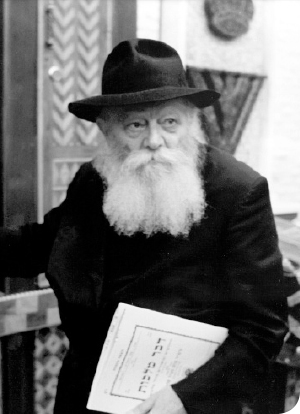WHY THE MEGILLA IS NAMED AFTER ESTER
Translated by Boruch Merkur
 The Megilla is named after Ester , “Megillas Ester.” It isn’t called “Megillas Mordechai,” and not even “Megillas Ester and Mordechai,” but “Megillas Ester” – Ester exclusively
The Megilla is named after Ester , “Megillas Ester.” It isn’t called “Megillas Mordechai,” and not even “Megillas Ester and Mordechai,” but “Megillas Ester” – Ester exclusively
Of course, since all of Ester’s actions were on the instructions of Mordechai – “…as Mordechai commanded her, for Ester followed the orders of Mordechai” (Megillas Ester 2:20) – certainly her efforts to nullify the decree were done solely upon Mordechai’s directives and insistence. [As the drama unfolds and Ester’s life is at risk] Mordechai exhorts her to comply, saying, “who knows whether at a time like this (the king will desire you next year, when the massacre is planned to take place ––Rashi) you will attain the kingdom (who knows whether you will maintain the power you now have ––Rashi)” (ibid 4:14), urging Ester to lobby on behalf of the Jewish people to nullify the decree against them. Why then is the Megilla called solely by the name of Ester, when Mordechai played such a major role in her efforts to nullify the decree?
The explanation hinges on the fact that Mordechai did not introduce or effect in Ester anything new; he merely revealed her innate strength of character in carrying out her mission. And after Ester’s inherent virtues were revealed, she rose to a level of greatness that surpassed even Mordechai himself, for which reason the Megilla is named after Ester alone.
To shed light on this nuance, consider how Mordechai and Ester symbolize “Torah” and “Yisroel” respectively. Mordechai symbolizes Torah. Our Sages say that “Mordechai in his generation was equal to Moshe in his generation .. Just as Moshe taught Torah to the Jewish people … so did Mordechai” (Ester Rabba 6b). And Ester alludes to the Jewish people, for which reason Ester was called Hadasa, “in accordance with the fact that tzaddikim are called hadasim (myrtle)” (Megilla 13a), and all Jews are called “tzaddikim – righteous,” as it is written, “and all Your people are tzaddikim” (Yeshaya 60:20).
Now, at first glance there are contradictory perspectives in comparing “Torah” to “Yisroel.” On the one hand, Torah is higher than the Jewish people, for the Jewish people must follow the precepts of the Torah; only by dint of Torah is the virtue of the Jewish people revealed. On the other hand, after Torah unveils the distinction of the Jewish people, the essential quality and virtue of the Jewish people becomes outlined and underscored – that they are actually greater than Torah. The superiority of the Jewish people is apparent in the saying of our Sages, “the thought of the Jewish people preceded everything” (B’Reishis Rabba 1:4) – “everything” including Torah.
The inner dimension of the Jewish people reflects the most lofty virtues, a concept that is expressed in the teaching of the Baal Shem Tov on the verse, “For you shall be a desired land” (Malachi 3:12) – that every single Jew resembles “a desired land,” within which is hidden “mayim chayim – springs of water” and very precious treasures (HaYom Yom 17 Iyar). It is just that these treasures are covered and buried; one must exert himself to bring them out of concealment.
The same concept applies to Mordechai and Ester. Although Mordechai exerts influence upon Ester to nullify the decree, he did not need to establish something new in her, implant within her qualities she did not possess. The entire impact of Mordechai’s influence on Ester was to reveal her inherent virtue that was dormant within her – already present, just concealed. At that point, Ester harnessed her own strength to further the cause of the Jewish people and nullify the decree. In fact, once Ester’s essential character was revealed, she had risen to a degree of greatness that even surpassed Mordechai. She therefore tells Mordechai, “Go and gather all the Jews and fast for my sake … three days” (Megillas Ester 4:16) [deciding on a course of action and dictating how it should be put into play].
Of course, Mordechai was the one who established the gathering and fast, as in all matters of Torah, for such authority is reserved for Sages. But it was Ester’s initiative that compelled Mordechai to do so. Thus, it was Ester who requested of the Sages: “Write about me for future generations and canonize my book as part of the Bible.” Although at first the members of the Sanhedrin did not agree to it, Ester succeeded in convincing them, and they sought out and “found a Scriptural source for it written in the Torah” (Megilla 7a).
(Hisvaaduyos 5743 Vol. 2, pg. 1204; Shaarei HaMegilla 52-53)
 January 31, 2018
January 31, 2018
Reader Comments